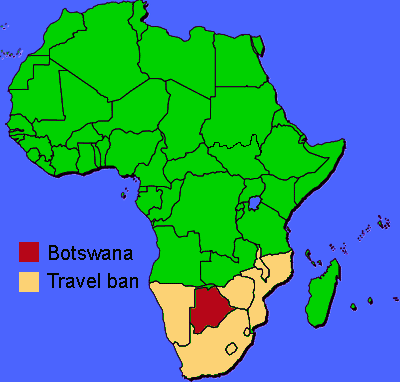
Circle the area on this map

B. South Africa was one of the first large countries to implement nationwide genomic sequencing to identify variants of the Covid-19 virus. The United States and the European Union banned travel from Botswana, South Africa, Zimbabwe, Namibia, Lesotho, Eswatini, and Mozambique. South African officials said the nation was penalized for acting responsibly by discovering and reporting the omicron strain.
C. Israel sealed its borders to all foreigners for 14 days after one case was confirmed in that country. Health officials say travel bans cannot prevent the spread of the omicron strain, but they hope to slow it down. Scientists worry the mutations may make the variant resistant to vaccines and make it more contagious. But, they also caution that much is still unknown about omicron.
A. About 10 percent of Africans have received at least one dose of a Covid-19 vaccine, compared with more than 60 percent of the populations in Europe and North America. Scientists warn that new, potentially dangerous coronavirus variants will continue to develop rapidly until there are enough people vaccinated in all of the world.
D. The World Health Organization certified in 1980 that smallpox had been eradicated across the globe after centuries of inoculation and an intensive vaccination program during the 1960s and 1970s. It is estimated that smallpox killed more than 300 million people in the 20th century alone.